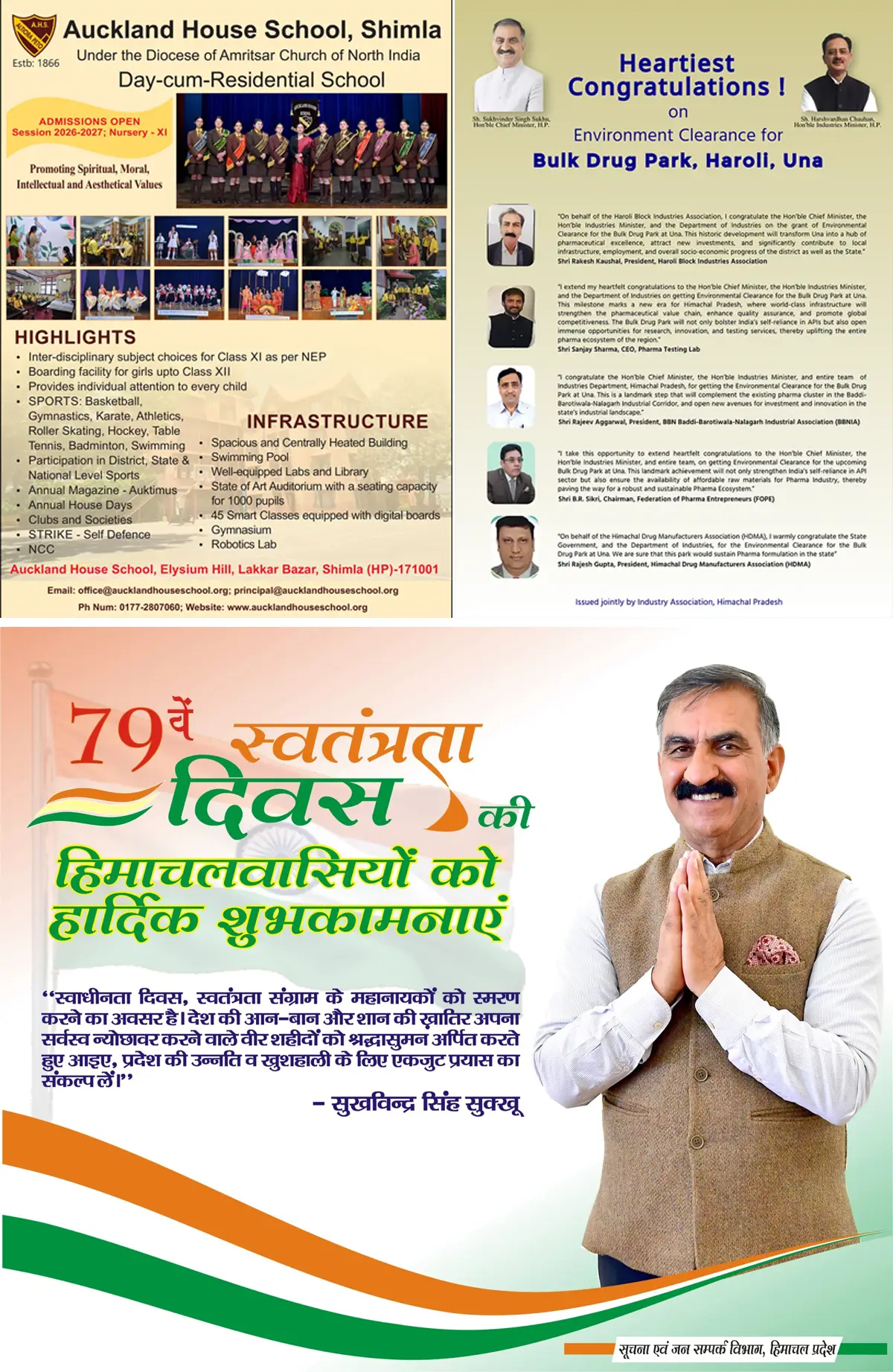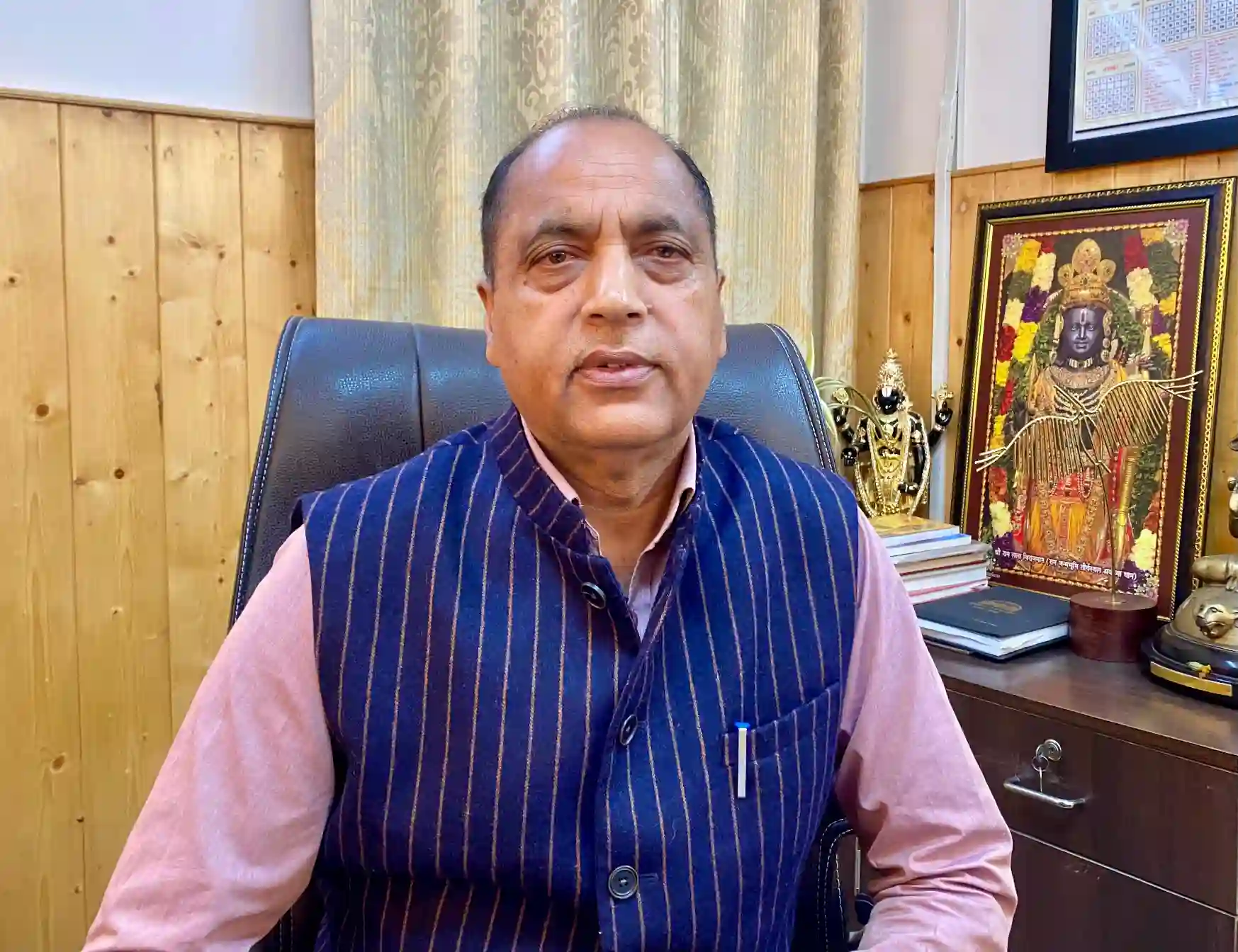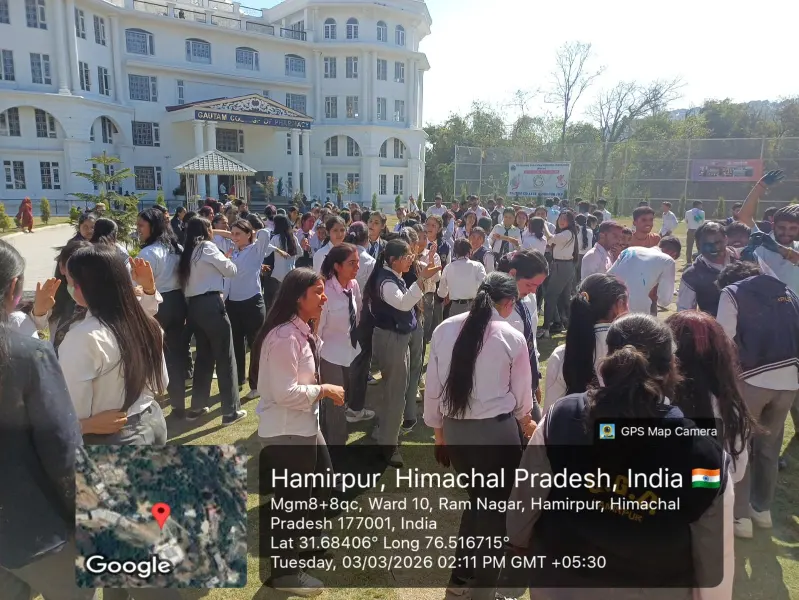Editorial: Online Classes in Times of Disaster – Misplaced Priority?
2 min read
Shimla Sept 03, Ritanjali Hastir
Natural disasters test not just infrastructure but also our collective wisdom in decision-making. In Himachal Pradesh, where incessant rains, landslides, and floods have thrown life out of gear, the state has simultaneously announced school closures and mandated online classes. At first glance, this seems like a solution to ensure continuity of education. But the ground reality raises serious concerns.
In disaster-hit regions, connectivity and electricity are luxuries, not guarantees. Roads are blocked, transformers swept away, and mobile towers run out of fuel backups. For many families, a mobile phone is the only lifeline – crucial for receiving emergency alerts, calling for help, or staying connected with relatives in danger zones. If the same phones are consumed by hours of online teaching, what happens when an urgent SOS cannot be made? Disaster management advisories urge people to conserve battery power, yet online classes compel the opposite. This contradiction cannot be ignored.
The online model was born during the pandemic – a crisis of isolation but not one of collapsing hills and rushing rivers. Back then, families stayed indoors with relatively stable power and internet. Today, people are running for their lives, shifting to relief camps, or waiting for rescue. Can we, in good conscience, equate these two scenarios?
A more sensible approach lies in adjusting school calendars. Holidays, weekends, or extra classes later can easily compensate for the missed lessons. Education is vital, but so is safety. Forcing online classes during such extreme circumstances risks widening the gap: those with uninterrupted internet will move ahead, while those without access will be left behind – punished not for negligence but for living in disaster-prone belts. Who then takes responsibility when a child’s future is compromised because “classes were already taught” but connectivity wasn’t possible?
Schools too must shoulder responsibility rather than passing the burden solely onto the government. Local institutions can take the initiative to design flexible recovery schedules once normalcy returns. After all, education is not about ticking boxes; it is about ensuring equal opportunity for all.
In the end, the question is not whether education should stop – it is about adapting it wisely to context. During floods and landslides, what Himachal’s children need most is safety, reassurance, and resilience. Studies can wait a few weeks. Lives cannot.






